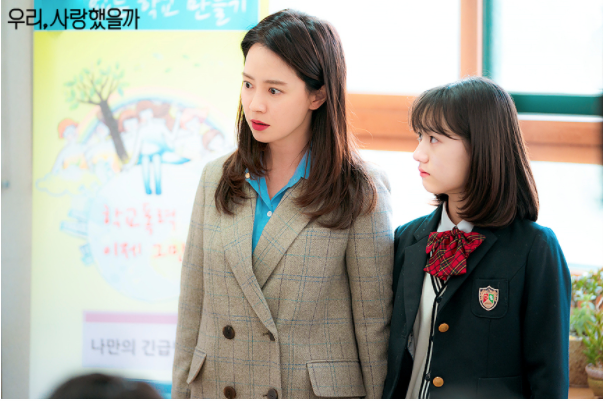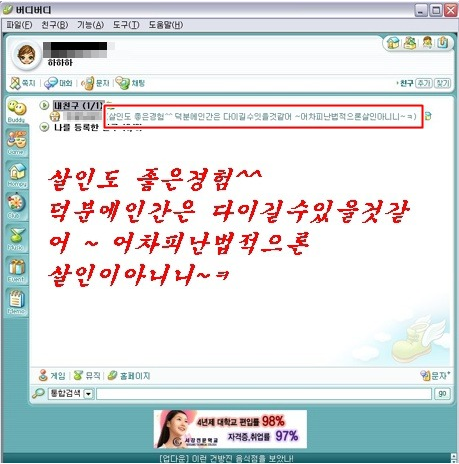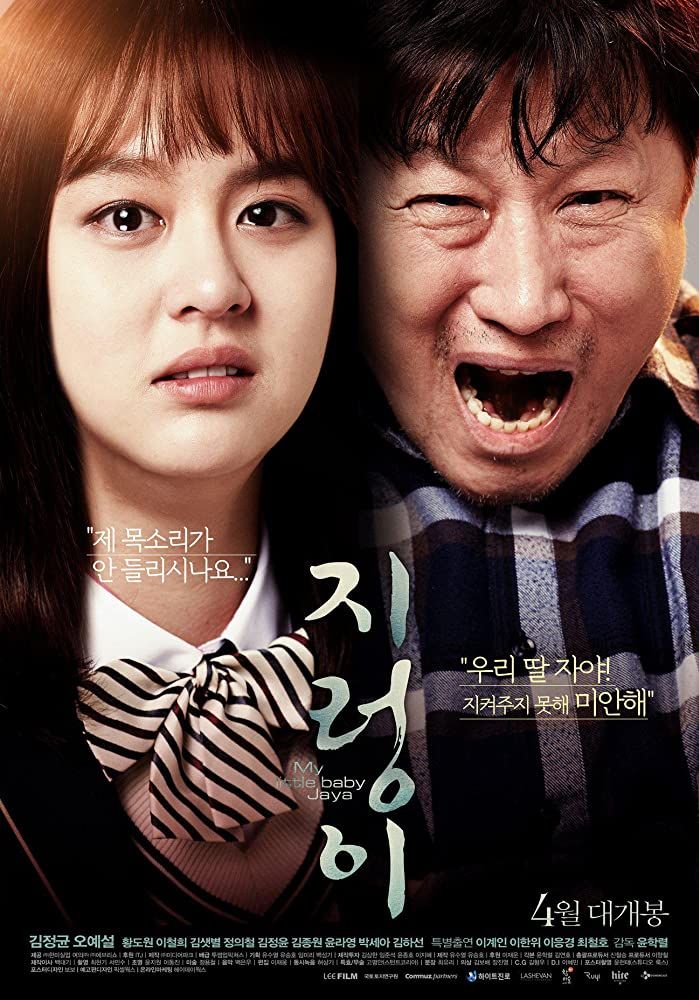
前國際新聞編譯,韓劇、書籍成癮人士。 每週分享讀書心得,偶爾介紹韓國文化。
[Watching Korean dramas and talking about South Korea] "Have We Loved?": When the campus becomes a battlefield, South Korea's "anti-bullying" war
JTBC's latest water-and-wood drama "Have We Loved?", starring Song Ji-hyo, "Midge", and Sun Haojun, who had performed "Reply 1994", was also on the scene. However, perhaps because of the lack of bright spots in the plot, the ratings are always hovering around 2%, and even the author is hesitant to continue chasing it. However, despite the old-fashioned plot, the content about "school bullying" caught the author's attention.

Korean society has begun to take "school bullying" seriously. The initial starting point can be traced back to 1995, and the "Busan Kaisung Middle School Atrocity Death Incident" ( 개성중학교폭행치사사건 ), which shocked the whole Korea 14 years ago, even caused public opinion. focus on. Today's "Watching Korean Dramas and Talking About South Korea" will talk about this history, how school bullying "evolves" with the times, and how the South Korean government tries to prevent the country's seedlings from hurting each other.
Note: Compared with “bullying”, South Korea usually refers to similar incidents as “school violence” (학교폭력, or 학폭 for short). describe.
The truth is divided into different accounts of the bullying death case at the Kaesong Middle School in Busan
The horror of campus bullying often lies in the physical and psychological torture given to the victim, which not only leaves a shadow, but may even lead to a dead end. However, the Kaicheng Middle School incident in 2005 directly led to the death of the victim on the spot, and was even called "the most appalling school killing incident."
According to the broadcast content of the SBS program "Want to Know the Truth" (그것이알고싶다, 1992~present), the perpetrator A and the victim B were originally reading books together. Because A is good at fighting fiercely, he is the king of fights in the nearby school. Not only does he have the upper hand in the fight, he even kicks the opponent's abdomen and head with his feet after he faints, causing B's head to bleed and his liver to 3. Two-thirds of it ruptured and was eventually hospitalized.

However, another version of this "truth" appeared on the Internet. In this version, A is also an expert in fighting, but the cause of the incident turned into a slight collision between the two in the corridor, causing A to be dissatisfied and "teaching" B, resulting in the death of the other party. In addition, it took only 1 minute to drive to the hospital, but it took 20 minutes. In addition, Naver, the main search website in South Korea at that time, was suspected of actively covering up the incident. All kinds of unreasonable situations also led to various conspiracy theories.
Not only "bullying to death" and vivid conspiracy theories have caused heated discussions, but the perpetrators have left on their personal pages "killing is also a good experience... Anyway, legally speaking, this is not a murder." The words of remorse have even caused netizens to besiege them. However, because the perpetrator was a minor, although he was sentenced to 2 years and 6 months in prison, he was still protected and punished in accordance with the "Juvenile Law".
Although memorial monuments were set up for the victims afterwards, the appalling "Kaicheng Middle School" incident did not bring an end to school violence. Since then, bullying incidents have continued to rage on campuses at all levels in South Korea, and now even with the emergence of smartphones and communication software, various "new types" of bullying have evolved.
School bullying that increases year by year, the younger the younger the more serious
In 2017, it can be said to be the peak of school bullying incidents in South Korea. The only ones that attracted media attention included the " Violence Incident of Female Middle School Students in Qingliangli " (2017.03), " Chongyi Elementary School Group Bullying Incident " (2017.06), " Jiangling Girls " Violence by High School Students ” (2017.07), “ Group Violence by Busan Girls High School Students ” (2017.09) and “ Violence by Cheonan Girls High School Students ” (2017.09). Among them, the Busan incident has attracted the attention of the Korean society because of the serious injuries of the victims.
At the same time, the situation of campus bullying even appears "the younger you are, the more common the situation is". According to a survey by the Korean Ministry of Education, the proportion of South Korean elementary school students who have experienced bullying has reached 3.6% in 2019, from 2.1% in 2017 and 2.8% in 2018. Among all forms of bullying, the most common are verbal violence (35.6%), exclusion (23.2%), and extortion (15.1%).
With the increasing popularity of smartphones, various new forms of bullying have emerged through torturing each other on the Internet, ostracism in chat groups, and even the distribution of indecent photos. In December 2019, it was even revealed that the perpetrator used the identity of the victim to maliciously order meals because of a " fried chicken order ", causing a social uproar.
When their children are no longer safe at school, Korean parents who value education are even more anxious. At this moment, some people find "business opportunities" and start a business of "repressing violence with violence".
Justice for lynching: The school violence solver who "control violence with violence"
"As long as 500,000 yuan, the uncle will help teach the classmates." The content of seemingly charging protection fees has attracted many parents. In addition to the "Uncle Plan" that costs 7 million won (about NT$200,000) for two weeks, there are also "Evidence Search Plan" and "Parent Plan". In addition to being able to do a photo search similar to that of paparazzi reporters on the scene, you can also directly find the parents of the perpetrators for coercion in the workplace. According to different services, the price is not the same.
According to statistics from the Korean Ministry of Education, the number of cases of school bullying has grown from 17,749 in 2017 to 31,240 in just four years. It is not difficult to understand why the seemingly absurd solution is It will be a solution that many parents are eager to find.
Seeing the serious situation of school bullying, some parents even choose to solve it by "lynching". Is the South Korean government really doing nothing?
Rich and innocent? School Violence Committee Difficult to Solve Parents' Concerns
As early as 1995, school bullying has become a public issue, and in 2003, the "School Violence Prevention and Countermeasures Law" (학교폭력예방및대책에관한법률) was passed by the Congress and officially implemented at the end of July the following year. According to this law, schools at all levels must convene a “School Violence Countermeasures Autonomous Committee” (학교폭력대책자치위원회, hereinafter referred to as the “School Violence Committee”) to mediate disputes when school violence occurs. The 2011 amendment to the Act stipulates that whenever there is a violent conflict, the school must convene a student violence committee.
The Student Violence Committee is composed of five to ten members in total, including teachers, parents, and experts from all walks of life. Its main business includes investigating incidents, deliberating, and coordinating disputes. must be excluded from membership. If the perpetrator is determined to be punished, it will also be recorded in the personal file record in the future.
However, in the Korean society that attaches great importance to further education, such a design has attracted a backlash from parents, who are worried that the record will become a "stain in life" for students. In addition, the " Chongyi Elementary School Collective Bullying Incident " that broke out in 2011, although there was a clear case of violence, it was suspected that the rich and the children of the artists were involved in the case. of infamy.
According to a report by the Central Daily in July 2019 , many parents were dissatisfied with the decision of the Student Violence Committee to initiate invalid lawsuits, and within the year before the report (2018.07~2019.07), the proportion of overturned cases was as high as 40% (116 overturned cases, 47 cases). , the reasons for overturning the verdict include violations of the committee composition, the incident itself cannot be regarded as campus violence, and the punishment is excessive, all of which have called the professionalism of the school violence committee into question.
Due to the excessively frequent convening of the Student Violence Committee (as mentioned above, any trivial matter, as long as violence is involved, must be held), the South Korean National Assembly amended the bill in March 2019, allowing schools at all levels to "be able to deal with the more difficult issues on their own. Minor cases" and "part of the punishment will not be recorded in the record", and reduce the proportion of parents participating in the school violence committee in an attempt to improve professionalism. However, this move not only caused dissatisfaction among parents, the so-called "minor" line was blurred, and it was also questioned that the school might hide it or close the case hastily.

Abolish the Juvenile Law? Bullying is the fundamental problem
Not only "We, Have You Ever Loved", including "Itaewon Class", "It's Okay Although It's Neurotic", and even the earlier "Who Are You - School 2015", "School Bullying" has long been in Korean dramas Old-fashioned theme. The 2017 movie "Earthworm" (지렁이) is even more themed on it, describing how school bullying joins forces with society to destroy a family. Even though the government has formulated relevant norms and designed a "study violence committee" mechanism, the irony is that we always see scenes in Korean dramas where coordination is useless, the weak are bullied, and in the end, only lynching can take revenge.
In order to punish the perpetrators, the South Korean society launched a petition for the "repeal of the Juvenile Law" in 2017. Although President Moon Jae-in personally replied that he would discuss and record it, he has still stopped because of differences of opinion. However, rather than "allowing teenagers to be punished", understanding the motives and reasons for violence committed by minors and improving the atmosphere of bullying in society may be the correct way to correct bullying.
Like my work?
Don't forget to support or like, so I know you are with me..
Comment…